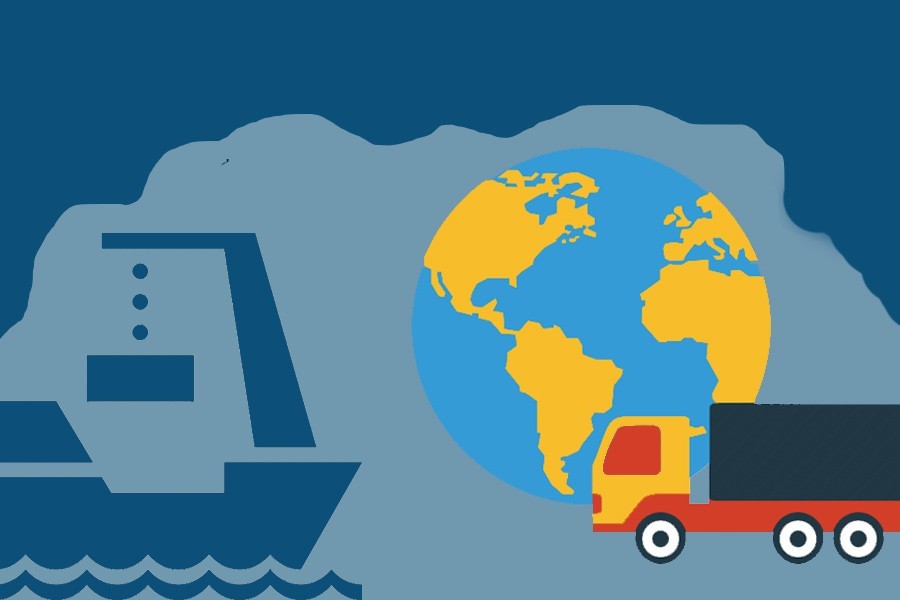Bangladesh eases rules for re-exporting products returned by foreign buyers

Published :
Updated :

Re-export of products returned by foreign buyers to Bangladesh has been simplified through relaxing restrictions in customs rules under a special order, now that a crunch time prevails over the world.
To this end, the customs authority allows exporters to re-export returned products within one year, by doubling the previous time of six months, from the date of send-back.
Also, the timeframe has been made flexible, if needed in any untoward situation, on the basis of application from exporters.
Two cardinal purposes are meant to be served with this bending of the trade rules: to prevent returned product sale on the local market and restrain some 'unscrupulous' traders from cashing in on cash incentives and duty refund.
Apparel exporters are happy as they think the additional time after the product return from buyers would help them ship seasonal products on time to the importing countries.
They say some 5.0 per cent of the apparel-export products come back annually on different grounds, including poor quality, missed lead time, and claiming discounts by buyers.
Considering a slowdown in trade amid prolonged COVID-19 pandemic worldwide, the customs wing under the National Board of Revenue (NBR) has issued the special order to resolve complexities over release and re-export of retuned export products by both bonded-and non-bonded exporters.
A senior customs official said the special order has been issued under The Customs Act 1969, section 21 (b), to ensure smooth release of retuned exports from abroad and their re-export.
The fresh order scrapped previous two orders issued on June 5, 2007 and March 16, 2017 respectively.
It was a demand of export-oriented industries as they were facing difficulties in meeting the deadline in this period of pandemic that has upset worldwide supply chains, he added.
Syed Nazrul Islam, First Vice President of Bangladesh Garment Manufacturers and Exporters Association (BGMEA) and Managing Director of Well Designers Ltd, says due to closure of stores or not clearing exported products on time by the buyers or missing seasons, some products returned to the country during this global epidemic.
Sometimes, shipped products of bankrupt importers come back to Bangladesh, he added.
Mohammad Hatem, Vice President of Bangladesh Knitwear Manufacturers and Exporters Association (BK-MEA), said the exporters sought one-year time as products exported targeting summer market or winter season could be re-exported in the same season again.
He, however, alleged several incidents of harassment at the customs point to get retuned products released from port.
"Customs authorities asked for a number of certifications, bank guarantees and imposed duty-taxes on locally procured raw materials like imported commercial products in case of failure in re-exporting in time," he added.
Although the Import Policy Order of the Ministry of Commerce allowed re-export without tax payments, customs authority made the process complex, he regretted.
As per the latest order, exporters not having bonded-warehouse licence have to submit an unconditional bank guarantee equivalent to applicable duty taxes, except Advance Income Tax (AIT), to the customs authority for releasing retuned export consignments.
In case of failure in re-export of returned export products or failure in complying with the conditions of bank guarantee, the exporter will have to pay all applicable duty-taxes for the products, says the order, signed by Md Mashiur Rahman Mondol, second secretary of customs (export and bond).
Customs officials will have to conduct cent percent physical verification of returned export goods to ensure description of products, weight, numbers and quantity.
Exporters will have to submit no-objection certificate of Import-Export Controller directorate for releasing returned goods.
Before re-export, the exporters will have to submit NOC of Bangladesh Bank or relevant lien bank.
The buyers ask the exporters to re-export goods after rectification.
In some cases, exporters try to find out new importers for the products if the old importer finally declines to accept the goods.
The customs authority issued the order to prevent misuse of the temporary admission of returned cargos as there are possibilities that unscrupulous traders may sell the goods on the local market instead of re-export.
Some traders may also take the advantage of the provision of the law to get cash incentives and duty refund against export.


 For all latest news, follow The Financial Express Google News channel.
For all latest news, follow The Financial Express Google News channel.